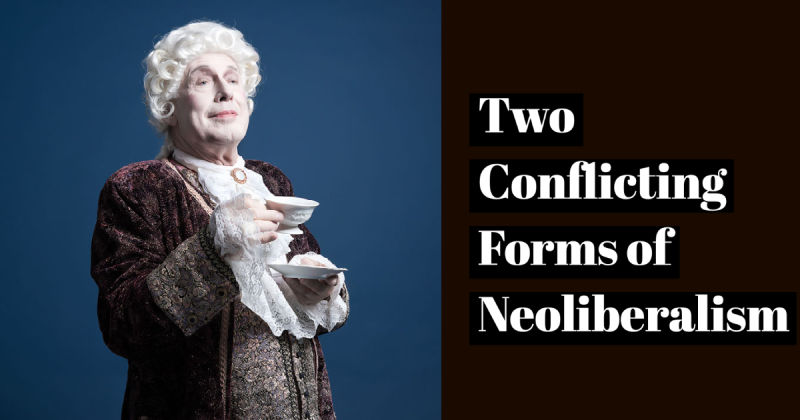8th May 2016 | By Simon Duffy
Within the ideals of neoliberalism lurks a greater evil - meritocratic elitism.

Neoliberalism has - I think - two main contrary forms. Often the thinkers who are cited as neoliberals are philosophers like Nozick, who argued for the minimal state and who took as the primary problem to be solved the question: What is the just and fair settlement for any society? This line of thinking goes back, through Mill and Locke, all the way back to the Classical era. It is the same kind of problem that Plato, Aristotle and other genuine political philosophers, have been considering for over two and half thousand years.
Although I can understand why it has acquired the 'neo' prefix, I think it is better to see this kind of theory as a modern form of liberalism (in the English sense). It is an attempt to set out the grounds by which diverse people can live together, with justice and with freedom. It is certainly a faulty theory - like perhaps all political theories - but its faults are better understood in the light of what it is genuinely trying to do, rather than simply treating it as all part of the devil's work. Almost all genuine liberals (of this kind) are forced to adjust their views to reflect the fact that markets do not ensure social justice. Almost all genuine liberals also tend to recognise that my freedom is limited, not just by direct political oppression, but also by my lack of essential resources.
The second form of neoliberalism is the kind of aristocratic prejudice that the 'best' should be richer and more powerful than the 'worst'. Aristocracy means rule by the best and today this has been transmogrified into what is called meritocracy - which sounds like its opposite, but actually means precisely the same thing. What has changed is the nature of the aristocracy - back then it was landed nobles, now it is the children of Eton and Oxford.
The belief of the powerful that they are the best, and so deserve their power, has always been self-serving, and often laughably so. But since Darwin it has taken on a new and more virulent form. Herbert Spencer outlined the relationship between modern theories of race and genetics as follows:
"The law that each creature shall take the benefits and evils of its own nature, be those derived from ancestry or those due to self-produced modifications, has been the law under which life has evolved thus far; and it must continue to the law however much further life may evolve. Whatever qualification this natural course of action may now or hereafter undergo, are qualifications that cannot, without fatal results, essentially change it. Any arrangements which in a considerable degree prevent superiority from profiting by the rewards of superiority, or shield inferiority from the evils it entails - any arrangement which tends to make it as well to be inferior as to be superior; are arrangements diametrically opposed to the progress of organisation and the reaching of a higher life."
Herbert Spencer, The Data of ethicsSpencer, and many other thinkers from that period, successfully connected human and animal nature (or rather a debased and partial account of animal nature) in order to legitimise the abandonment of most of the moral imperatives passed down from Christian (and before that Jewish) civilisation: concern for the welfare of all, the privileged status of the weakest, the need for humility and the imperative of self-control and temperance. All those things that might be seen to 'redistribute' resources and energy from the strong to the weak were converted from moral imperatives into corruptions, temptations and threats.
This way of seeing the world reached its peak under Hitler and has gone into hiding since the end of World War II. But it is this aristocratic conceit that underlies much of what now passes as neoliberalism. It is not liberal to encourage genetic engineering by encouraging the abortion of children with disabilities. It is not liberal to concentrate more power in the hands of politicians and corporations. It is not liberal to sanction, bully or coerce people who are out of work. These approaches are not liberal, they are meritocratic.
Distinguishing these two kinds of neoliberalism - the liberal form and the aristocratic form - is strategically important, even for those of us opposed to both forms. First because we cannot easily defeat both forms together - for they have different bases. Second because we miss the opportunity to divide these forces against each other.
Personally I think liberalism, as a defence of freedom, is not our worst enemy. What is an enemy is the kind of one-eyed right-wing economic liberalism that treats the right to property as if it were some kind of divine imperative. But much worse than this is the kind of elitism that believes that ordinary people don't really need rights, that we'd much better off if disabled people did not exist and that it is acceptable to manipulate the press and media to stigmatise any group that might be helpfully scapegoated.
Meritocratic elitism (which can be found on both the Right and on the Left) should be our main enemy and it may be useful to demonstrate how illiberal and controlling are its advocates.